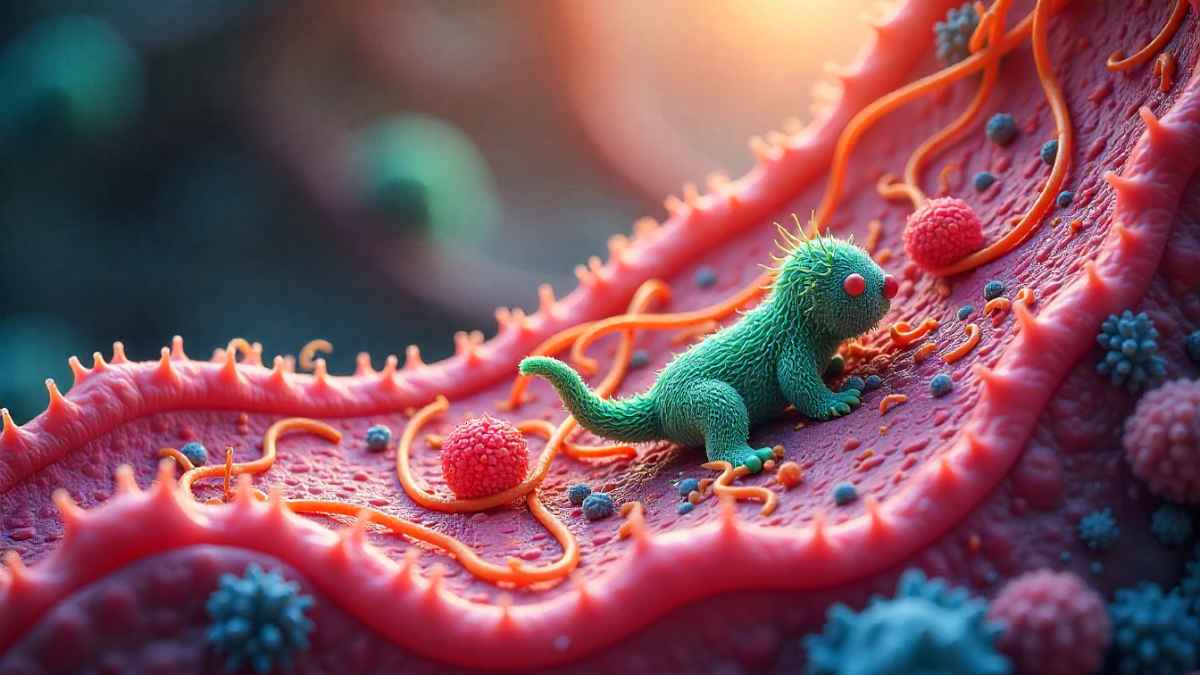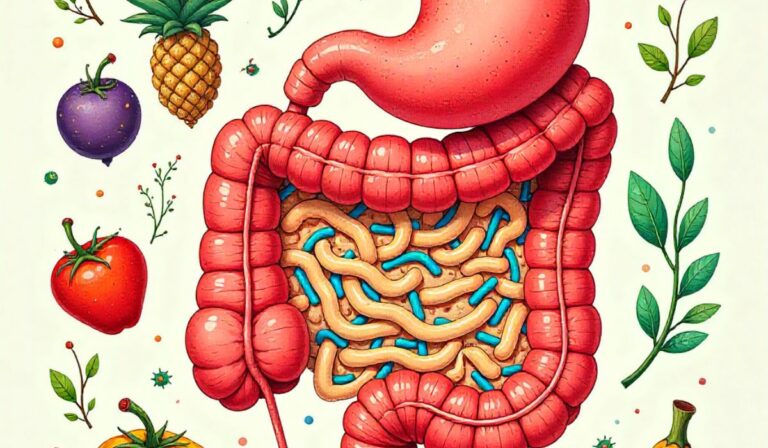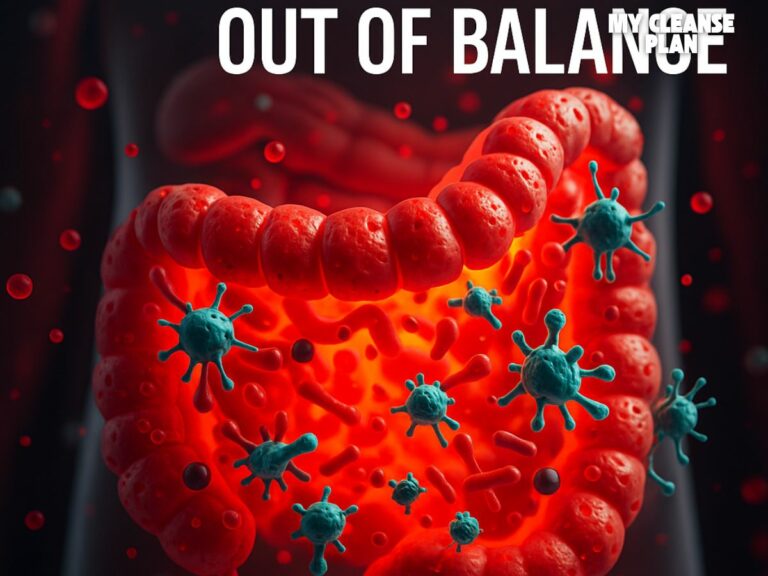Microbiome Hygiene Hypothesis: Too Clean or Just Right?
Remember when your mom told you to “wash up”? We’re constantly bombarded with messages about being clean, from hand sanitizer commercials to home cleaning products.
But what if being too clean isn’t always a good thing?
This is the question that the Microbiome Hygiene Hypothesis raises. In this post, we’ll explore the concept of this interesting hypothesis and why our constant quest for cleanliness might be messing with our bodies.
You’ll discover how our microbiome interacts with cleanliness and health. You’ll gain insights to make more informed choices about your health and potentially improve your overall wellness.

Key Takeaways
The Essence of the Microbiome Hygiene Hypothesis
Have you noticed a rise in allergies and autoimmune disorders in recent decades? Scientists have. It’s not just a coincidence.
The Microbiome Hygiene Hypothesis proposes a connection: our modern, overly clean lifestyles might be contributing.
Think about it – we sanitize everything, from our hands to our homes. While this helps prevent certain illnesses, it also limits our exposure to the diverse bacteria and microbes our bodies need.
What is the Microbiome?
Your microbiome is like a bustling city inside your body.
It’s made up of trillions of microorganisms – bacteria, fungi, viruses, and other tiny creatures – that live mainly in your gut but also on your skin and throughout your body.
These microorganisms are not invaders; they’re essential partners, playing vital roles in digestion, immune function, and overall gut health. They help us digest food, synthesize vitamins, and even influence our mood.
The diversity of your microbiome is a sign of good health. A more varied microbial community is better at dealing with challenges and keeping everything balanced.
Think of it as having a strong and diverse team working for you.
How Does Cleanliness Relate to the Microbiome?
Our ancestors lived in environments with more microbes, from soil to animal contact. They also had more exposure to pathogens.
This constant exposure trained their immune systems to differentiate between harmless and harmful microbes.
Modern hygiene practices, such as frequent handwashing with antibacterial soap, cleaning with harsh chemicals, and consuming processed foods, decrease our contact with a diverse range of microbes.
This, in turn, affects the makeup of our gut microbiome, potentially leading to imbalances.
Such imbalances are linked to various health issues. Some research shows that children raised in cleaner environments have a higher risk of developing allergies and autoimmune diseases.
The Immune System’s Role
The immune system, your body’s defense team, is like a highly trained army. It learns to fight off harmful invaders.
It also learns to tolerate harmless things. Early exposure to a variety of microbes helps the immune system learn what’s friend and what’s foe. Without this early training, the immune system can become confused.
It might start attacking harmless substances like pollen (leading to allergies) or even the body’s own tissues (leading to autoimmune diseases). The gut microbiome plays a critical role in “training” the immune system.
The Impact of Modern Lifestyles
It’s not just about hand sanitizer and bleach. Our modern lifestyles have many ways to influence our microbiome.
This includes our diet, our exposure to nature, and the way we’re born. These lifestyle factors have implications for the Microbiome Hygiene Hypothesis.
Dietary Influences
The food we eat dramatically shapes our microbiome. Diets high in processed foods, sugar, and unhealthy fats can negatively impact the balance of gut bacteria. These diets starve beneficial bacteria.
They also feed harmful ones.
A diet rich in fiber from fruits, vegetables, and whole grains, on the other hand, promotes a diverse and healthy microbiome. Fiber acts as a prebiotic, feeding the good bacteria.
Probiotics, found in fermented foods like yogurt, also help boost the good bacteria.
Your gut bacteria also play a key role in your metabolism. It regulates how your body processes food and stores energy. Poor gut health may contribute to things like weight gain or even diabetes.
Environmental Factors
Spending time outdoors, in contact with nature, introduces us to a wider variety of microbes.
This type of exposure can strengthen our immune systems and promote a healthy microbiome.
The opposite is true of living in a city. This type of lifestyle limits our exposure to diverse microbes. Consider the difference between a child playing in a park and one who spends all their time inside.
This difference impacts microbiome health and may contribute to a heightened risk of developing health issues.
Research consistently suggests that children who grow up on farms, or with pets, have lower rates of allergies and asthma.
Birth and Early Childhood
How a baby is born and their early experiences significantly affect their microbiome.
Babies born vaginally are exposed to their mother’s vaginal microbiome during delivery, which helps colonize their gut with beneficial bacteria.
Cesarean births, on the other hand, may result in different initial microbial colonization, sometimes impacting long-term health outcomes.
Breastfeeding also plays a vital role, as breast milk contains prebiotics and probiotics that support the growth of beneficial gut bacteria.
Early exposure to diverse environmental microbes, such as from pets or playing outdoors, further strengthens the development of a healthy microbiome in infancy and early childhood.
Balancing Hygiene and Exposure
So, are we saying you should stop washing your hands? Absolutely not! Proper hygiene is essential for preventing the spread of infectious diseases.
But the Microbiome Hygiene Hypothesis suggests there’s a balance to be struck.
We need to find a way to protect ourselves from harmful pathogens while still allowing our bodies to interact with a variety of microbes.
Practical Steps for a Healthy Microbiome
Here are some actions you can take to support a healthy microbiome while maintaining good hygiene practices:
- Embrace Outdoor Time: Spend time outdoors in nature. This can increase your exposure to diverse microbes.
- Eat a Fiber-Rich Diet: Include plenty of fruits, vegetables, and whole grains in your diet to feed your gut bacteria.
- Consider Probiotics: Add probiotic-rich foods or supplements to boost your gut health.
- Limit Antibacterial Products: Reduce your use of antibacterial soaps and cleaning products.
- Wash Your Hands Strategically: Wash your hands thoroughly when needed, but avoid excessive handwashing.
The Future of the Microbiome Hygiene Hypothesis
The science of the microbiome is continuously changing. It provides many opportunities for medical advancement.
Further research will likely refine our understanding of the Microbiome Hygiene Hypothesis.
Scientists are exploring the role of the microbiome in various health conditions.
This includes mental health and how to best manipulate it to improve wellness.
Future studies may identify specific microbes that are particularly beneficial for certain health issues and develop interventions designed to promote a healthy microbiome.
FAQ of Microbiome Hygiene Hypothesis: Too Clean or Just Right?
Do I need to stop cleaning my house?
No, you don’t have to abandon your cleaning habits. Regular cleaning to prevent the spread of infectious diseases is vital.
However, consider using gentler cleaning products and avoiding excessive use of antibacterial products.
Is exposure to pets good for my microbiome?
Generally, yes. Contact with pets can introduce a diverse range of microbes.
This exposure can help to promote a more robust and resilient microbiome. Always practice proper hygiene around pets.
What foods are good for my gut health?
Foods rich in fiber, such as fruits, vegetables, whole grains, and legumes, are excellent for your gut health.
Fermented foods like yogurt, kefir, and sauerkraut also provide beneficial probiotics. Consider taking supplements as needed.
How can I protect my children from the negative effects of the Hygiene Hypothesis?
Encourage outdoor play, allow for some exposure to pets, and support a diet rich in fiber and probiotics. Avoid unnecessary use of antibacterial products, and consider breastfeeding if possible.
Is it ever too late to improve my microbiome?
No! Your microbiome is constantly changing. You can make positive changes at any age through diet, lifestyle adjustments, and other interventions, to improve your gut health.
Final Thoughts
The Microbiome Hygiene Hypothesis challenges us to rethink our relationship with cleanliness.
It suggests that while hygiene is crucial for preventing disease, our relentless pursuit of sterile environments might come with a cost.
By striking a balance between hygiene and exposure to a diverse range of microbes, we can support a healthier gut microbiome, which in turn promotes overall health and wellness.
You can begin implementing simple changes in your life, such as spending time in nature, eating a fiber-rich diet, and reconsidering your use of antibacterial products.
Embrace a balanced approach to hygiene, and take steps to nurture your microbiome, creating a healthier future for yourself.


![Do Probiotics Work Unpacking the Science and Benefits[1]](https://mycleanseplan.com/wp-content/uploads/2025/11/Do_Probiotics_Work__Unpacking_the_Science_and_Benefits1-768x448.jpg)



![Gut Microbiome’s Connection to Allergies and Asthma[1]](https://mycleanseplan.com/wp-content/uploads/2025/10/Gut_Microbiomes_Connection_to_Allergies_and_Asthma1-768x448.jpg)